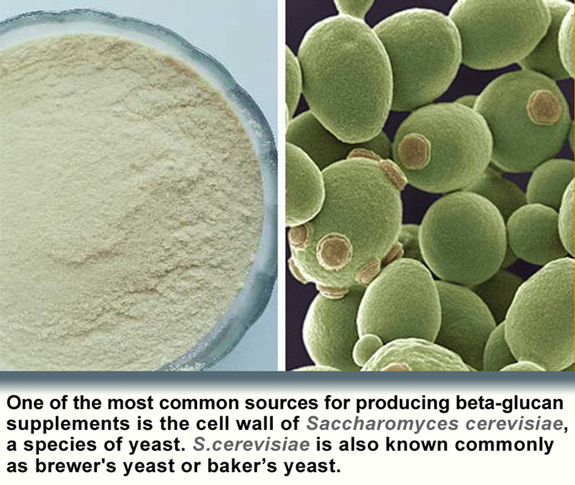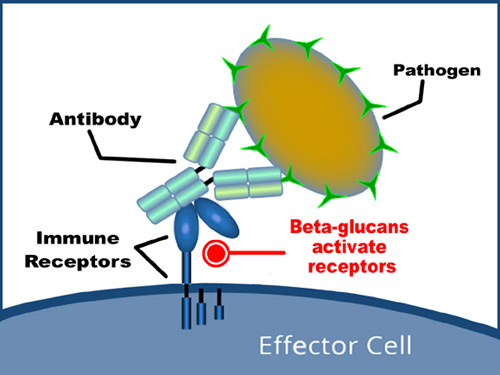Beta-glucans are naturally occurring polysaccharides—a class of carbohydrates. They are found in cereal grains, yeast, fungi and algae.
While whole cereal grains and fungal plants have been used for at least two millennia for medicinal and cosmetic purposes, the benefits of isolated beta-glucans were not explored until the 20th century.
Beta-glucans have been linked to a wide range of health benefits including immune enhancement, cancer reduction, metabolic health support, and wound healing.
Beta-glucans were first discovered in lichens, and shortly thereafter in barley. Later, scientists determined that beta-glucans from different sources vary in the specific benefits they provide.
A particular interest in beta-glucans from oats arose after the cholesterol-lowering effect from oats was reported in 1981.
In fact, in 1997 the FDA approved of a claim that intake of at least three grams of beta-glucan from oats per day decreased absorption of dietary cholesterol and reduced the risk of coronary heart disease. The approved health claim was later amended to include other sources including oatmeal, oat bran, whole oat flour, and whole grain barley.
Yeast derived beta-glucans
In recent decades it is beta-glucans derived from yeast that have gained particular attention—for their potent ability to modulate and strengthen the immune system.
Yeast derived beta-glucans have properties that make them insoluble in water. This structural complexity enhances their interaction with immune receptors, making them especially effective at stimulating immune responses. This characteristic has been repeatedly demonstrated by reputable studies, including:
• A 2014 review of the existing studies concluded, “All studies taken together clearly indicate that oral intake of insoluble yeast beta-glucans is safe and has an immune strengthening effect.”
• A 2021 study—during the height of the Covid pandemic—found beta-glucans were effective Covid fighters.
The study was conducted in India where alternative treatments for Covid were not only permitted, but encouraged.
The researchers reported treatment with two strains of beta-glucans increased the body’s ability to fight off infections by boosting the production of leukocytes. Leukocytes are the white blood cells that rush to defend the body from invaders such as the common cold, the flu or Covid.
• A 2023 Swedish study found beta-glucans derived from Saccharomyces cerevisiae (baker’s yeast) to be effective in curtailing the growth of Mycobacterium tuberculosis—the pathogenic agent of tuberculosis.
According to the findings of the study, published in the Journal of Innate Immunity, beta-glucans provided protection through a process called “trained immunity”—where the host builds an enhanced response to a secondary infection.
While noting follow-up studies are needed the Swedish researchers summarized, “We found that beta-glucans can upregulate key pathways that are important for cellular signaling and motility as well as being able to modulate functional characteristics like increased mycobacterial control and cytokine release.”
• A 2024 German study found the “immune-modulatory properties” of beta-glucans were an effective adjuvant for building a tolerance to allergies.
The researchers, who published their findings in the International Journal of Molecular Sciences, tested six commercially available beta-glucans and found all six were effective to some degree in activating immune receptors.
“Our experiments indicate that ß-glucans have distinct immune-modulating properties, making them interesting adjuvants for future allergy treatment,” the researchers wrote in the study conclusion.
– – –
Beta glucans can be found in several Optimal Health Systems product blends. Click the links below to learn more:
• Opti-Immune VRL
• Optimal Defense
– – –
Source: MedRxiv.org, Journal of Innate Immunity, International Journal of Molecular Sciences.



